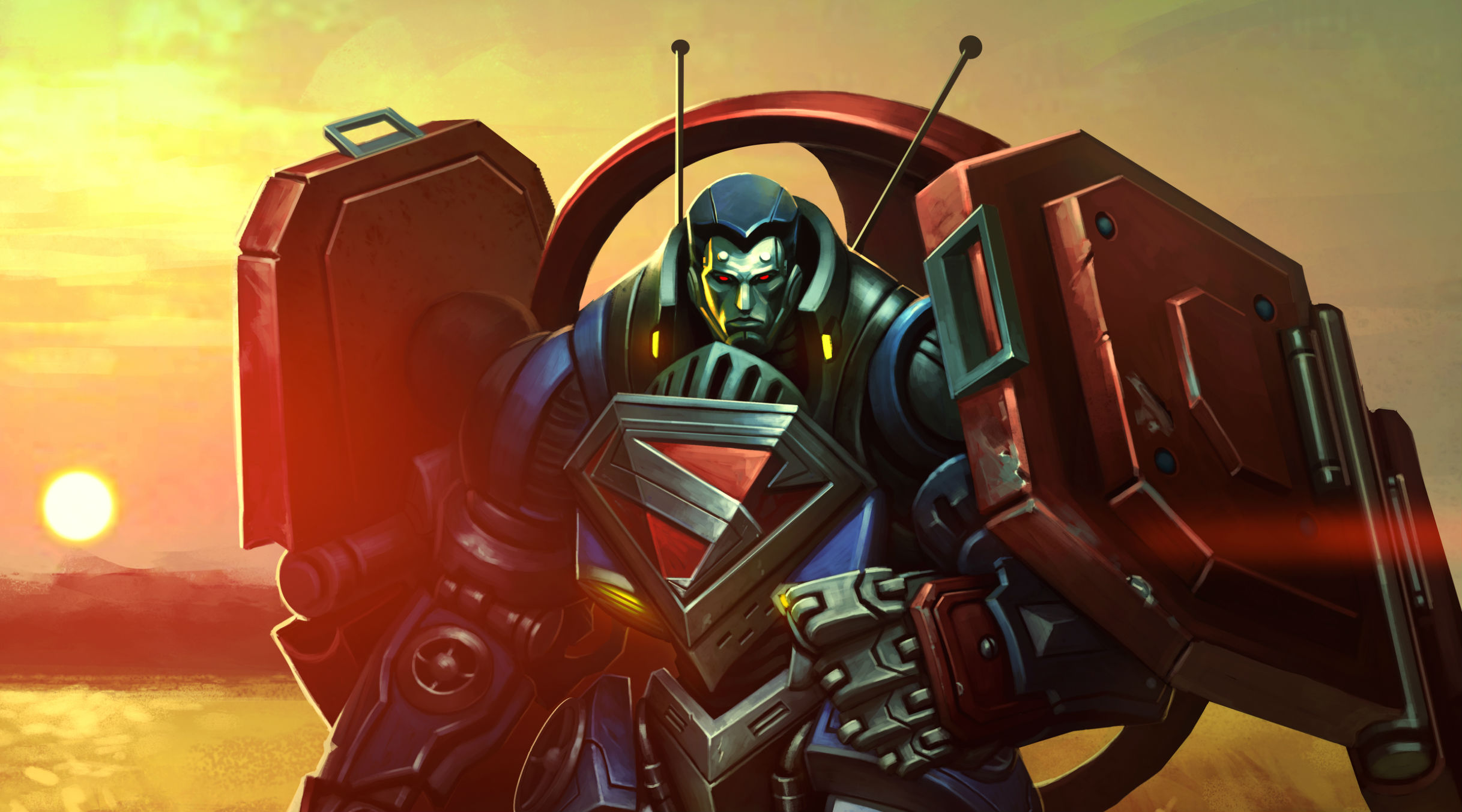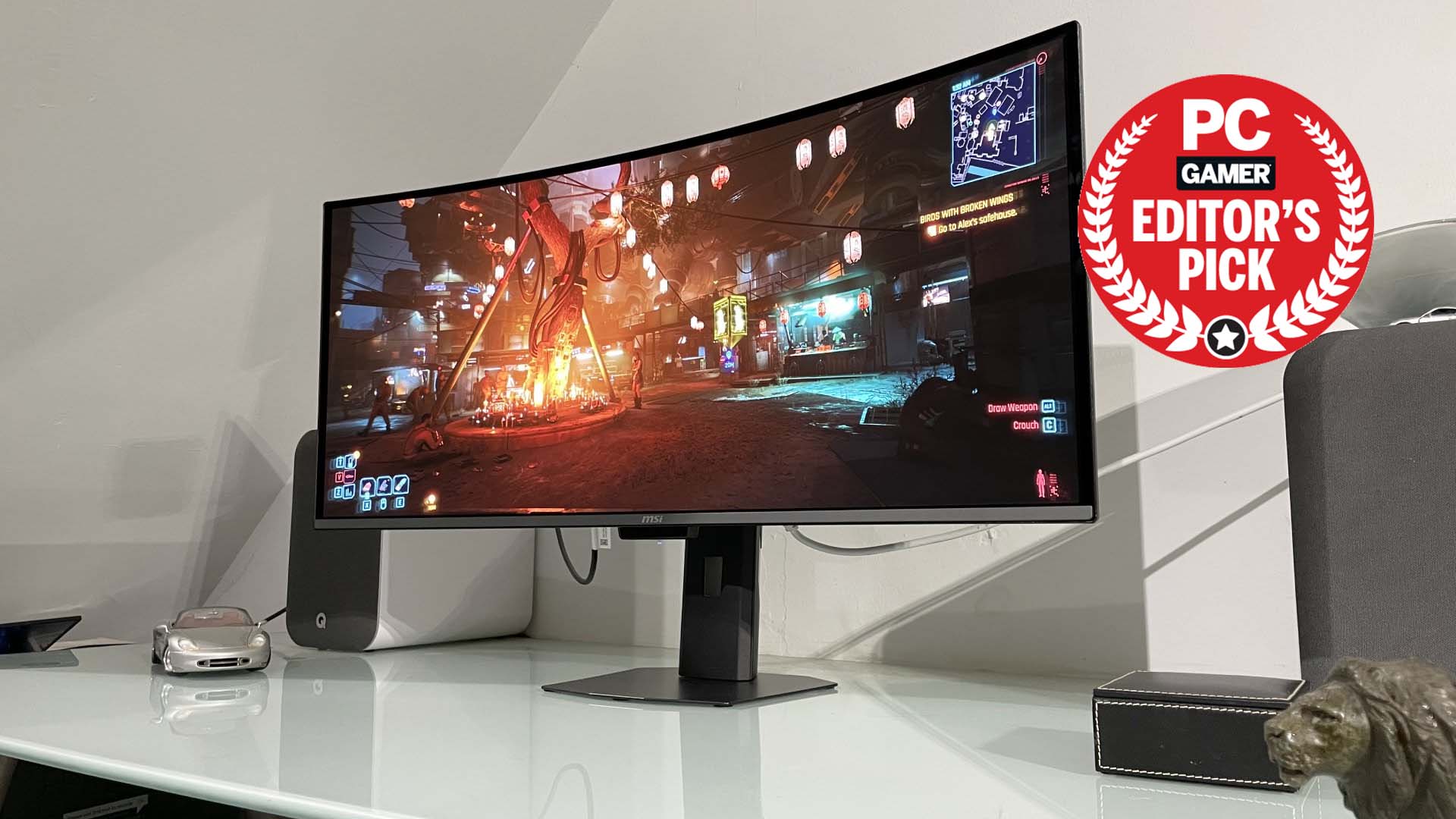Our Verdict
Play it for its novel ideas, not because you love Batman. Dwindling player numbers are a cause for concern.
PC Gamer's got your back
What Is It? DC-inspired take on the League of Legends formula.
Play It On: Dual core CPU, 2Gb RAM, 512mb GPU
Reviewed On: Intel i5-2500K, 16Gb RAM, GeForce GTX 970
Price: Free with microtransactions
Release Date: Out now
Publisher: WB Games
Developer: Turbine
Multiplayer: Online, up to 10 players
Website: Official site
Joe Chill is, in most tellings of the story, the man who shoots and kills Bruce Wayne's parents. The gun he used has never been particularly important in and of itself. After all, guns don't inadvertently create Batman—people do.
Nonetheless, firearm-brandishing Chill is one of the DC universe's founding images and that's reason enough to shoehorn a reference to him into a MOBA. In Infinite Crisis, Joe Chill's Revolver offers bonus attack damage and critical hit chance. Its fourth-tier upgrade, Deadly, increases critical damage by 50%. It'll cost you 4000 credits to get there, and that means killing robots that march down mirrored lanes from each team's fortified base towards the centre of the map.
If Joe Chill's Revolver sounds familiar, you're probably a League of Legends fan. It's a close analogue for that game's Infinity Edge, and this mirrors Infinite Crisis' debt to League in general. In both games, you're likely to go for an attack damage and critical hit item on characters designated 'attack damage carries'—those who endeavour to buff up their regular attacks rather than relying on damage from powerful spells or abilities. In League of Legends, then, you might build an Infinity Edge on Tryndamere. In Infinite Crisis, you're quite likely to build Joe Chill's Revolver on Batman. If you're reeling at the idea of Batman saving up robo-bucks to buy a souped-up version of the gun that killed his mum and dad, then you're probably a DC fan.
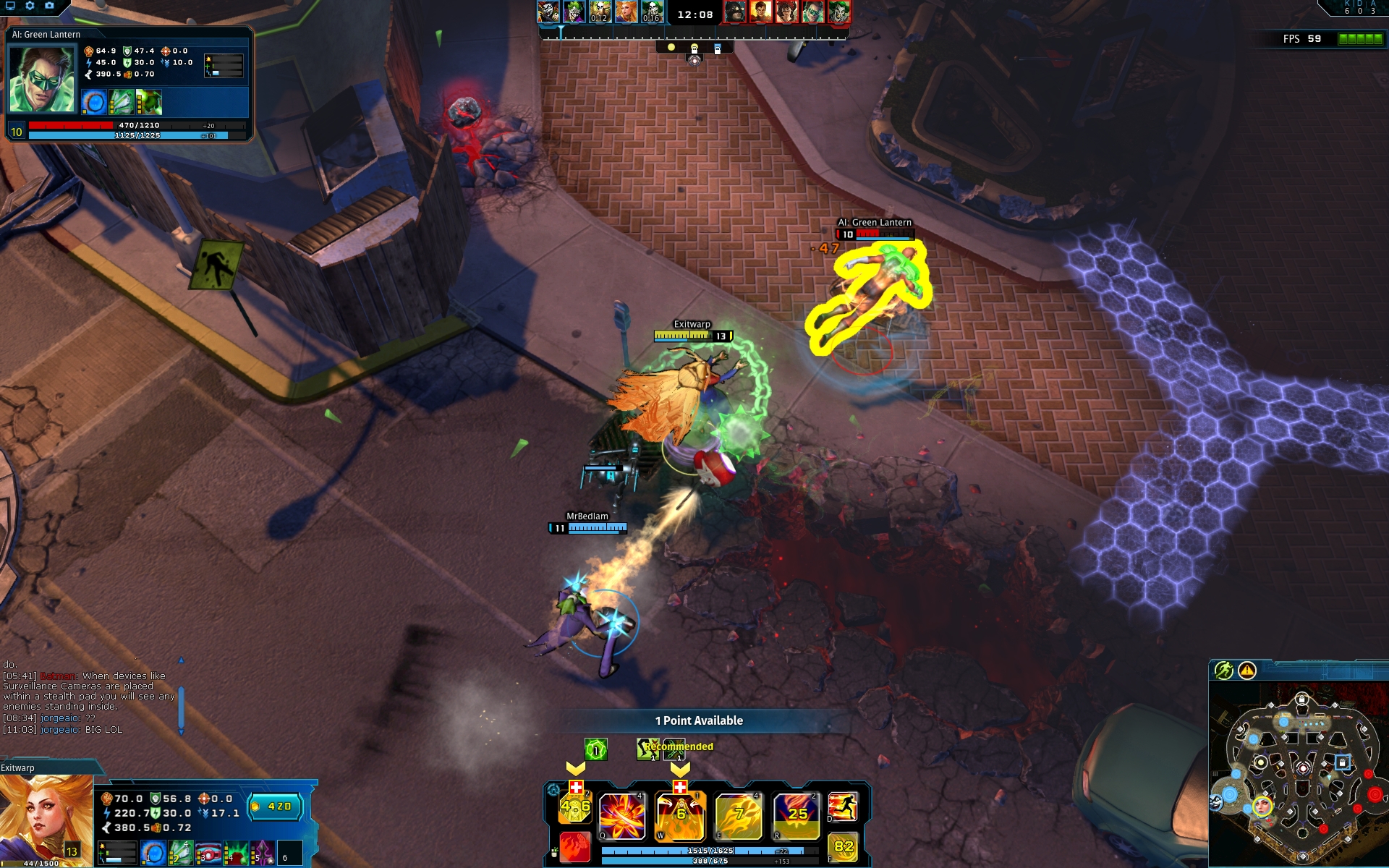
Infinite Crisis is a capable MOBA that attempts to cram as much of the DC universe as it can into that familiar template, but it can't overcome the fact that these two things simply don't suit each other. Isometric camera angles and RPG-derived abilities are a terrible fit for characters defined by their speed, sustained power, and verticality. Every iconic image of Superman places him above you. He's Superman. In Infinite Crisis, Superman is a bruiser who runs around slowly, periodically using his ultimate ability to dash to enemies before beating them up with his eye-lasers and frost breath.
There is also Mecha Superman, an answer to the question 'what if Superman was a tractor and had a big drill'. He, like Arcane Supergirl ('what if Supergirl, but a wizard') and Atomic Wonder Woman ('what if Wonder Woman, but Mad Max') represent expansions to the character roster drawn from Turbine's own Elseworlds-esque forays into the multiverse. These are fun characters to play—the way Arcane Supergirl's fire-based skillset emphasises positioning, cooldown management and skilful aim is satisfying to learn—but so far from the core DC fantasy that they may as well just be wizards.
Despite its failings as an adaptation, however, Infinite Crisis is an enjoyable game with a bunch of novel ideas. Strategic timing is important to every MOBA, but this is the first time I've seen the concept explained clearly to new players: in Infinite Crisis, a scrolling timeline at the top of the screen lets you know when to expect new objectives to become available across the map. Those objectives are interesting, too: on the Coast City map, teams can capture a doomsday device by defeating its guardian. While equivalent to Dota's Roshan or League's Baron in principle, the impact of stealing an orbital superweapon is far more tangible and satisfying to deploy.
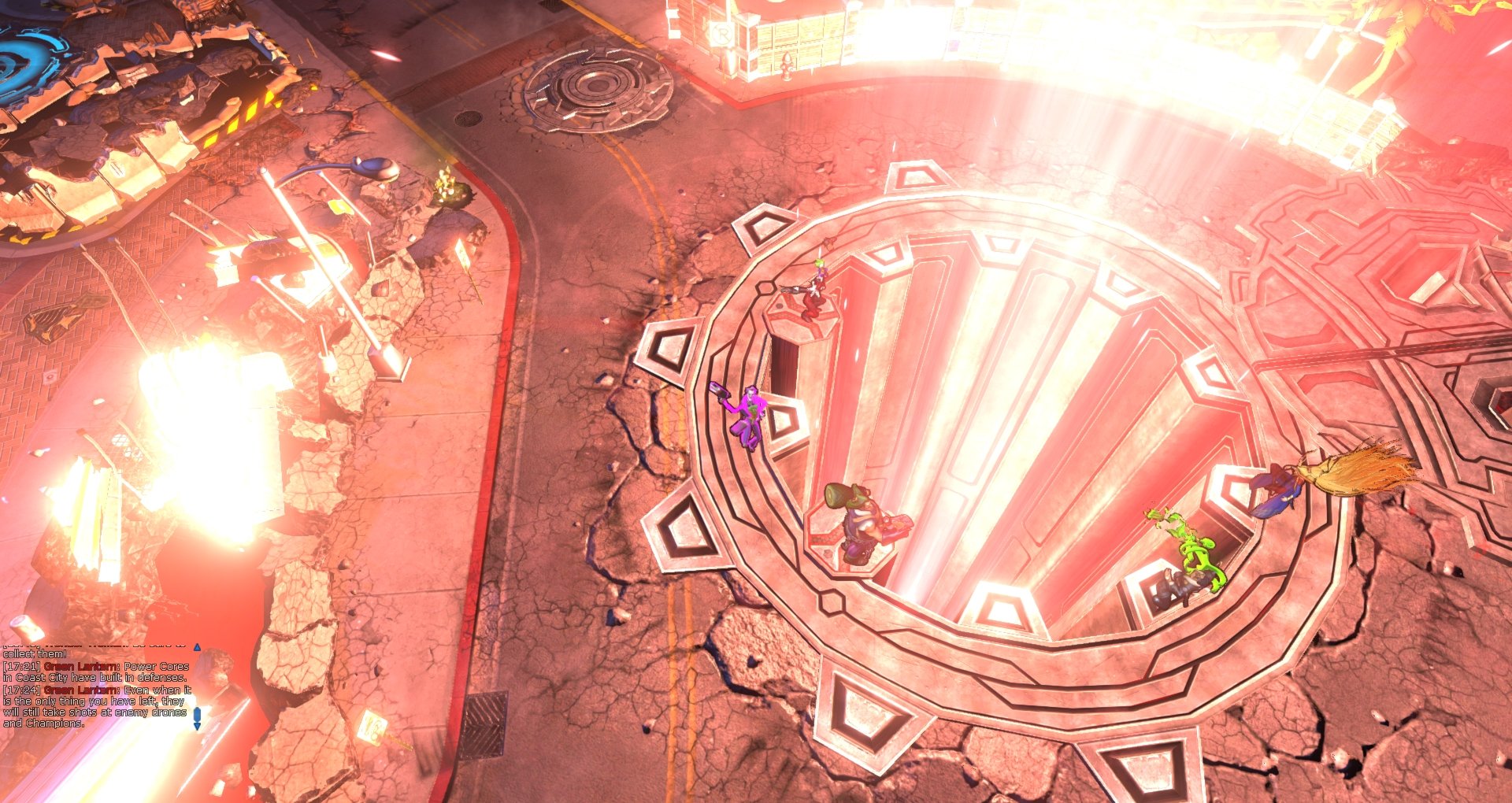
Similarly, characters with the super strength power can lift certain environmental objects to create new pathways or throw them to begin a kill attempt. I also like the way certain abilities interact with the environment—like Doomsday's Charge, which gains bonus effects if you successfully slam an enemy champion into a wall. Where the superhero theme survives, it survives in the sense of power conveyed by abilities like this.
Keep up to date with the most important stories and the best deals, as picked by the PC Gamer team.
Infinite Crisis offers a rotating set of free characters, with others available for purchase or through grinding. Happily, however, you can also permanently unlock a decent number by playing through the tutorials. Coupled with the free rotation, this means that you have access to about a quarter of the total pool right from the start—generous relative to most games of this type. Those tutorials are pretty good, too, and bot support makes it possible to pick up the basics in a safe environment.
The interface plays against the game's accessibility, however: it's small and fiddly, a poor fit for the game's obsession with stats and complex interactions between abilities. There's a lot of rough art, too—particularly item icons, many of which amount to geometric shapes on a black background when shrunk down to fit the inventory panel.
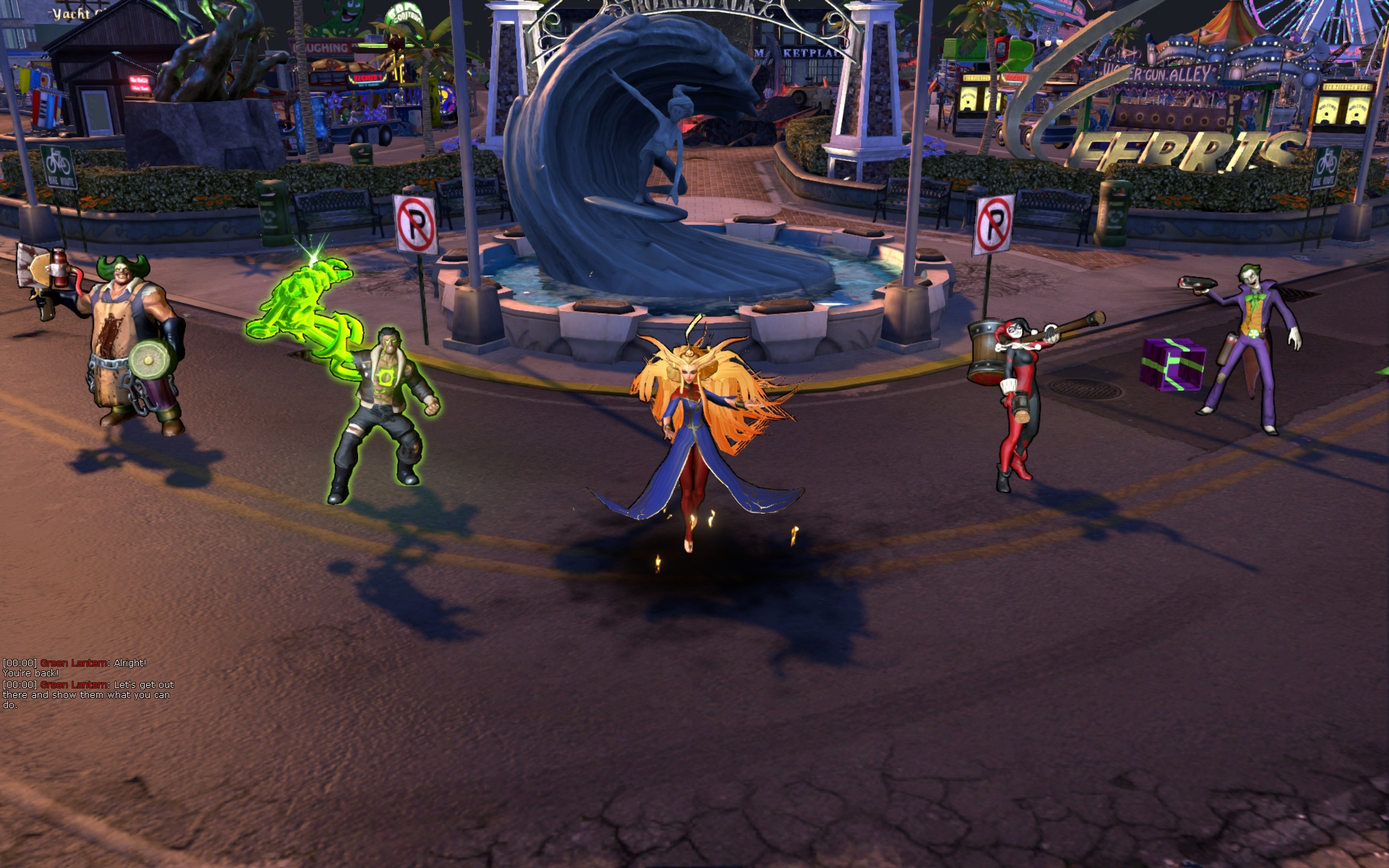
These are small problems, however, compared to the game's dwindling player pool. As of the time of this review, every map but one (Coast City) is disabled to ensure decent matchmaking times. There should be single-lane and three-lane modes and a variant of League's Dominion map, but if you want to play these you'll have to wait for the scant evenings and weekends that they're made available. As for the community that does exist, I've found it to be relatively friendly aside from a very high incidence of players idling or abandoning games—whatever deterrents are in place to prevent this, they're clearly not working.
This leaves Infinite Crisis in a tough position. It needs to attract new blood to stay viable, but its value to new players decreases with every player it loses. It's a perfectly serviceable game in a popular genre, but it's really let down by its lack of a strong single draw. It's proof that you can't just combine two popular things and create a different, equally popular thing—League of Legends isn't peanut butter and Batman isn't jam. Infinite Crisis' ideal player is the League fan who doesn't want to play League and the DC fan who doesn't mind seeing the DC universe undermined in a dozen ways. That's a tough sell, even for a free game.
Play it for its novel ideas, not because you love Batman. Dwindling player numbers are a cause for concern.
Joining in 2011, Chris made his start with PC Gamer turning beautiful trees into magazines, first as a writer and later as deputy editor. Once PCG's reluctant MMO champion , his discovery of Dota 2 in 2012 led him to much darker, stranger places. In 2015, Chris became the editor of PC Gamer Pro, overseeing our online coverage of competitive gaming and esports. He left in 2017, and can be now found making games and recording the Crate & Crowbar podcast.
